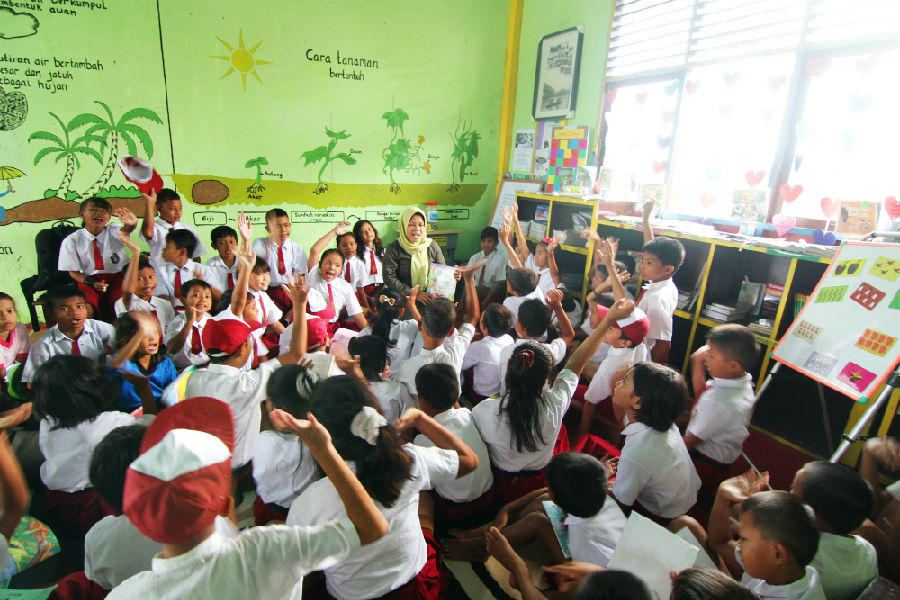Education in Indonesia Lags Behind Neighbor Countries
Indonesian students are among the lowest performers in Southeast Asia, says a recent report released by the Organization for Economic Cooperation and Development, OECD.
The OECD Program for International Student Assessment, PISA, is a test given every three years to 15-year-olds across 79 countries. It examines student ability in math, reading and science. The results from the 2018 PISA place Indonesia in the bottom 10 of the countries.
The findings point to education quality issues in Southeast Asia's most populous country.
"It's a wake-up call for all of us in the education sector," or field, said Totok Amin Soefijanto, a policy expert at Paramadina University in Jakarta.
Indonesia has a large youth population in the country of 260 million. These young people represent considerable possibilities for economic growth. However, education problems can interfere with that aim.
Poorly qualified teachers are a major problem. Sixty-five percent of students PISA questioned said their teachers rarely provided direct feedback to them. The Indonesian government uses teacher ability tests. In 2015, three million teachers in the country took the test. The average score was 53 percent, reported University of Melbourne professor Andrew Rosser, who examined the results.
The tests have not been repeated since then. Paramadina University's Soefijanto thinks they should be. "Because if we don't measure this," he said, "we don't know where their skills are decreasing."
One in five teachers often misses school, the World Bank reported in 2017.
Indonesian teachers also work for low wages and are often appointed as favors to others, Rosser says.

Hundreds of native languages are spoken in the island nation, adding to the complexity of its education system.
Under military ruler Suharto from 1965 to 1998, the Indonesian school system was highly centralized. But as the government moved towards democratic reform, control of educational policy began moving to local governments. Because Indonesia covers an area of 15,000 islands, this spread makes it difficult to establish national education guidelines or teacher qualifications.
The OECD report notes that Indonesia has made progress in getting children into school. From 2001 to 2018, those taking the PISA increased from 46 percent to 85 percent of 15-year-old students.
The report says increasing student populations can create weaknesses in school systems. It points out that Indonesia's PISA results have remained about the same since 2001, suggesting the country "has been able to raise the quality of its education system."
Indonesia's education minister, Nadiem Makarim, told the Indonesian newspaper Kompas that the PISA results "should not be packaged as good news." He announced this week that the country's national examination will be reworked to test students on math, reading and writing skills.
Math was a difficult PISA subject for Indonesian students. Just one percent of those tested performed at the highest levels. This compares to 44 percent in mainland China and 37 percent in Singapore.
Some resources for math and science study have been reorganized to support other subjects, such as religion. Almost two-thirds of the country's secondary schools are private and offer Islamic education. Students at these schools generally score lower on tests than students at nonreligious schools, a 2017 study reported.
Indonesia spent about 3.6 percent of its gross domestic product on education in 2015, lower than neighbors like Malaysia and Vietnam. The amount, however, observes a constitutional requirement to spend 20 percent of the national budget on education.
In the meantime, there is one area in which Indonesian students score high: 91 percent of them report "sometimes or always feeling happy," a full six points higher than the world average.
I'm Anne Ball. And I'm Bryan Lynn.













